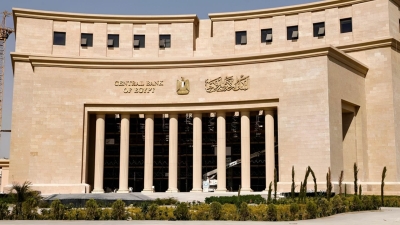Egyptian banks' climate change policies: from investment decisions to daily operations
First Bank

Banks play an important role in countries' response to the risks of climate change, whether through smart investment decisions or internal actions that support the transition towards a sustainable and more resilient economy, and Egypt has not been immune, adopting several policies to address climate change and influence their investments and day-to-day operations.
Green finance is one of the most prominent policies pursued by banks operating in the Egyptian banking sector to support the green economy, especially in view of the central bank's strong support and acceleration of this policy. In July 2021, it issued the Guiding Principles for Sustainable Finance by building capacity and knowledge, promoting sustainable financing, engaging stakeholders, managing climate change risks and applying sustainability principles to the Bank's internal activities and work and reporting.
It also issued binding regulatory instructions to promote sustainability and sustainable financing, through the establishment of an independent sustainability and sustainable finance department for each bank, as well as obliging banks to include policies and operational procedures for sustainable financing in the bank's credit and investment policies, as well as the use of an environmental consultant to evaluate large corporate projects to be financed from an environmental perspective, and finally to prepare periodic reports. It also issued several initiatives aimed at achieving economic development and promoting sustainable financing by making specific funds available to banks for use in granting credit facilities to their clients under the umbrella of those initiatives at low rates of return s economic development and employment opportunities for young people and the reduction of unemployment rates, This takes into account the social component of sustainable financing, as well as the focus on sectors such as the new and renewable energy sector, which takes into account the environmental component
The Central Bank has also directed banks to measure the carbon footprint of the Bank's internal activities as a first step towards the implementation of Principle 5 of the Guiding Principles of Sustainable Finance, "Applying sustainability principles to the Bank's internal activities and business", within the responsibility of the banking sector to drive the transition towards sustainable development and study available solutions to reduce the negative impacts of climate changes. This step also contributes to the development of the disclosure process of banks' sustainability practices
As part of this, many banks have launched environmentally friendly financing products aimed at financing sustainable projects, including green loans that support investments in improving resource efficiency and reducing carbon emissions.
Investing in renewable energy is also one of the most prominent policies pursued by banks to support the green economy, many of which have tended to finance renewable energy projects, such as solar and wind, by providing funding for the construction of home or commercial solar plants, with coverage rates up to 100% of their cost.
Banks have also worked to support environmental start-ups and thus have begun to direct funds towards startups focused on green innovations, such as recycling techniques and the development of plastic-free products.
Not only is this, but internal sustainability policies have been pursued, perhaps most notably reducing the carbon footprint of the banks themselves, by reducing reliance on paper through a shift to digital banking services (such as the use of banking applications and Internet banking services) that reduces emissions from traditional processes It has also moved towards green buildings, with some banks such as Al Ahli Egypt, Egypt and International Commercial starting to apply green building standards to improve energy and water efficiency at their headquarters and branches.
It has also worked to promote a culture of sustainability among employees and customers by launching training programmes and workshops for employees on the importance of sustainability and their role in reducing the environmental impact of daily activities, as well as through information campaigns and awareness-raising activities directed at clients to raise awareness of the importance of investing in green products and support environmentally friendly policies
In conclusion, moving towards sustainable development is not only the responsibility of banks, it is also a shared responsibility of us as individuals, and we can support these efforts by choosing green banking products, switching to digital services, and reducing the use of paper in our daily dealings.













